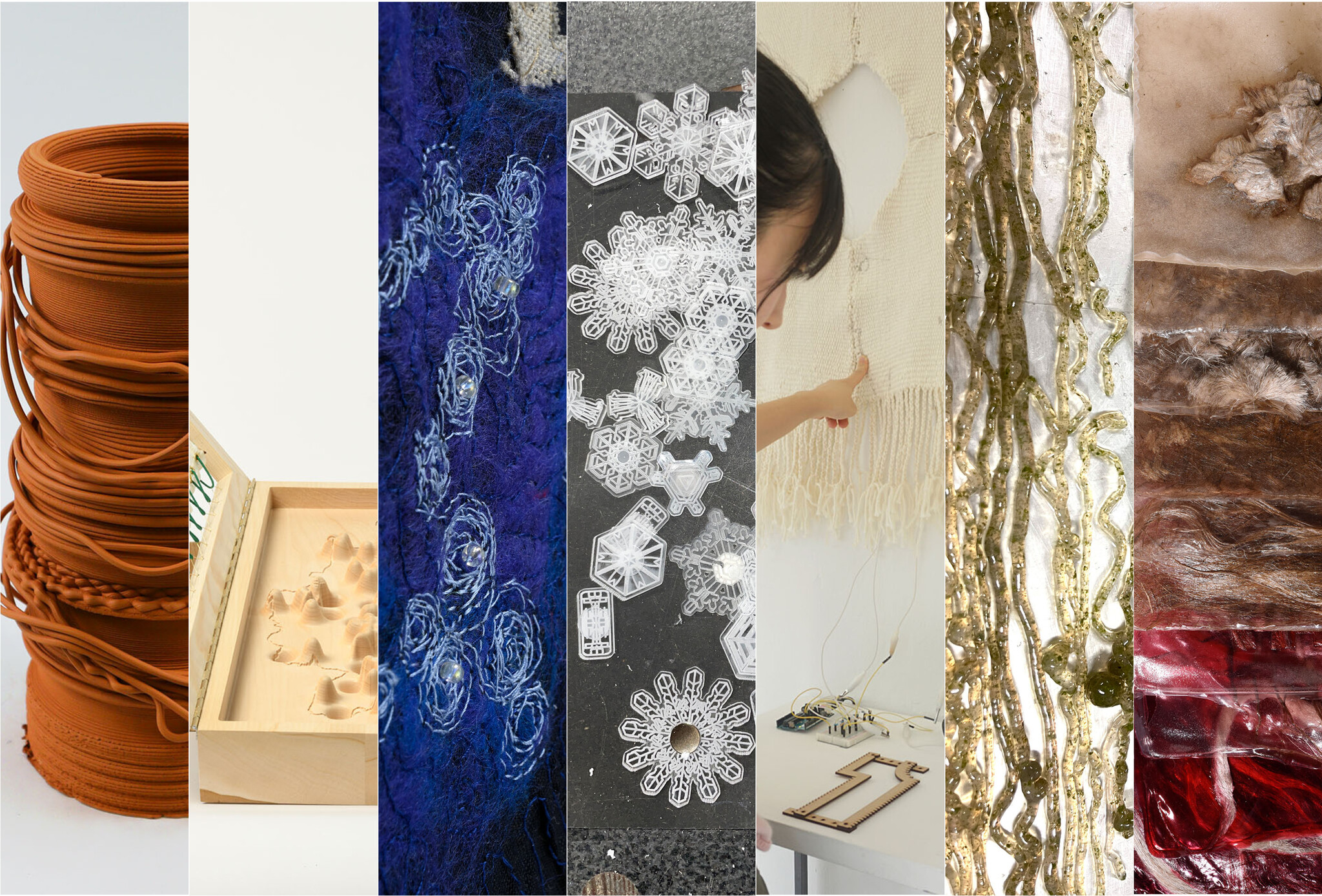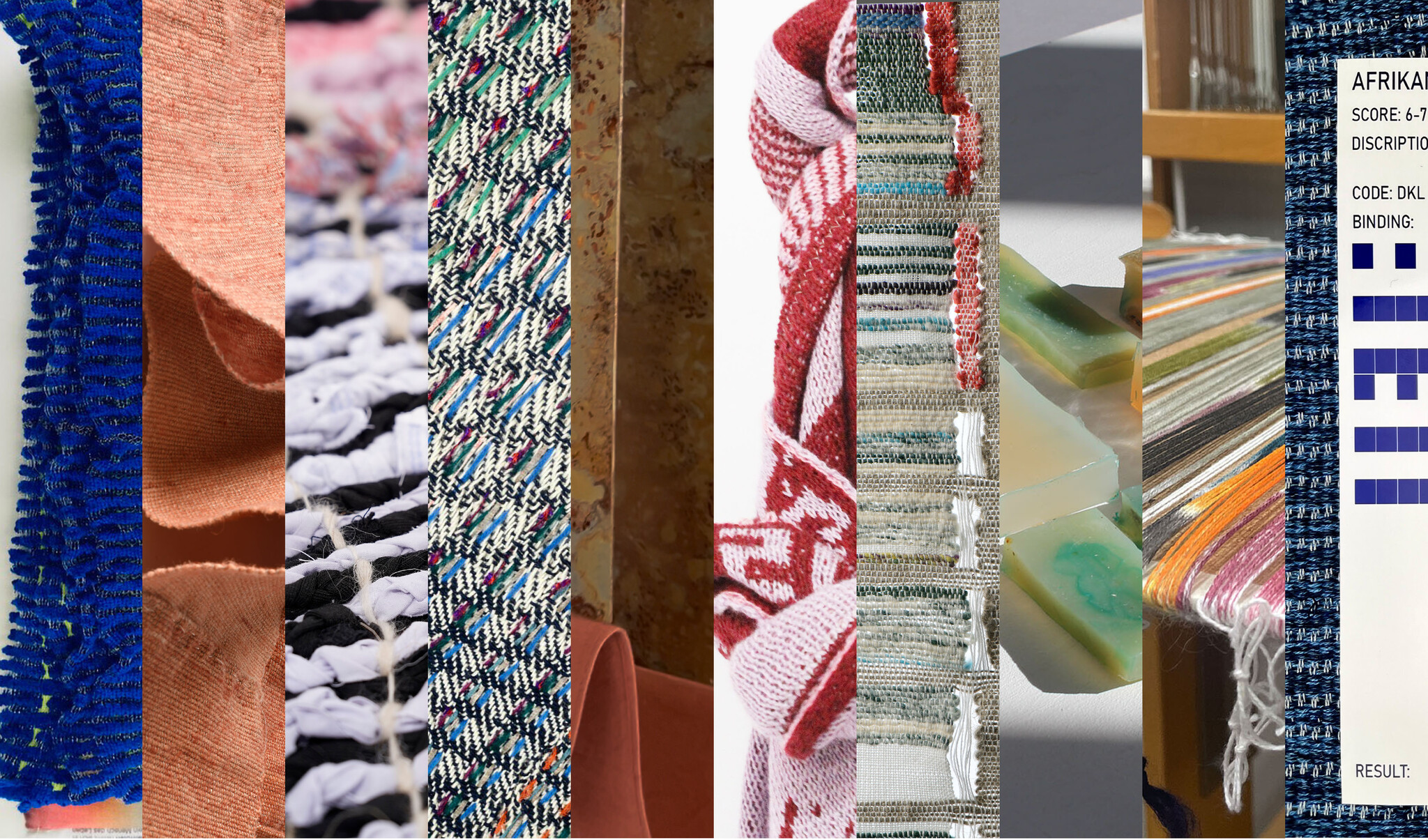Wintersemester 2024/2025, BA/MA Textil- und Material-Design eLab , Experimentelle Materialforschung , Textil_Startseite
Sensing Data – How do we encode information in materials?
What happens when we can not only read information visually, but also can experience it through other senses?
In our digital age, data is omnipresent. Data physicalization is the physical embodiment of data to make abstract information understandable by mapping data to physical properties, such as size, weight, color, texture, movement, and shape. It taps into the growing awareness of materials as independent carriers of information and highlights their potential to expand communication and content. Unlike data visualization, which primarily uses visual channels for data representation, data physicalization enables multisensory experiences. At the same time, data physicalization has the potential to promote inclusivity. The choice of material – considering physical properties, origin, lifecycle, and subjective associations – also influences the meaning and interpretation of an object. However, for designers, these additional layers of information present the challenge of conceptualizing and effectively encoding these dimensions. Ultimately, the goal of the course was to create physical data representations or develop material studies suited for this purpose.
The course was enriched by excursions to the Futurium Berlin and the Grassi Museum Leipzig, a data physicalization symposium with guest speakers, hands-on workshops on data visualization, yarn spinning, circular design, biomaterial films/3D printing, as well as targeted consultations on concept text writing.
Invited talks
Thien Thanh Vo (Product design MA student), Hanna Wiesener & Simon von Schmude (Matters of Activity / KHB), Nayeli Vega Vargas (Matters of Activity / KHB), Georgia Panagiotidou (King's College London), Jos Klarenbeek & Aliki van der Kruijs (Independent Designers/Researchers)
Supervision
Mark-Jan Bludau (visiting professor eLab, data visualization)
Elisabeth Oestringer (textile-and material design)
Mina Mahouti (circular & material design)
Esther Kaya Stögerer (biomaterial design research)
Andreas Kallfelz (critical writing)
Julia Marquardt (documentation)

Alle Rechte vorbehalten Sensing Data Students

Alle Rechte vorbehalten Sensing Data Students